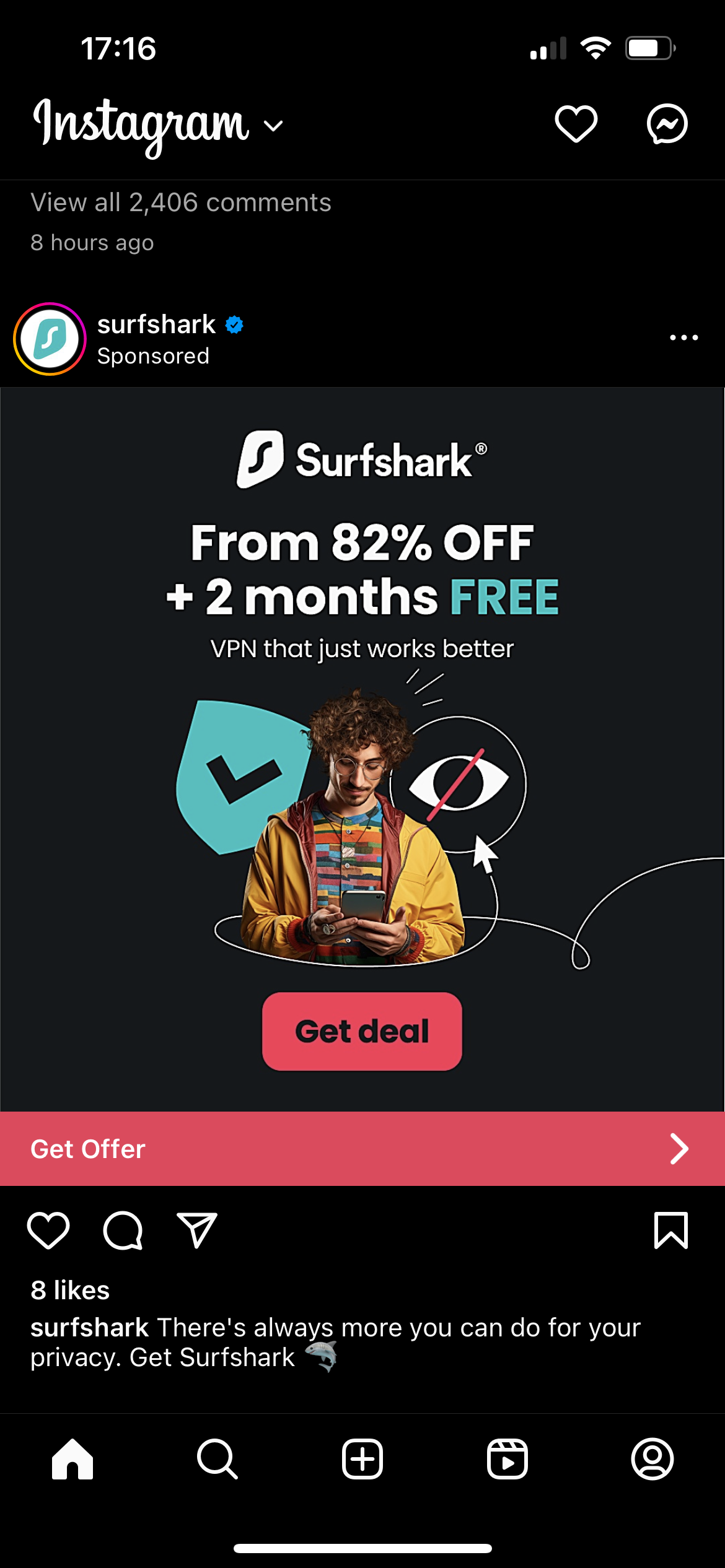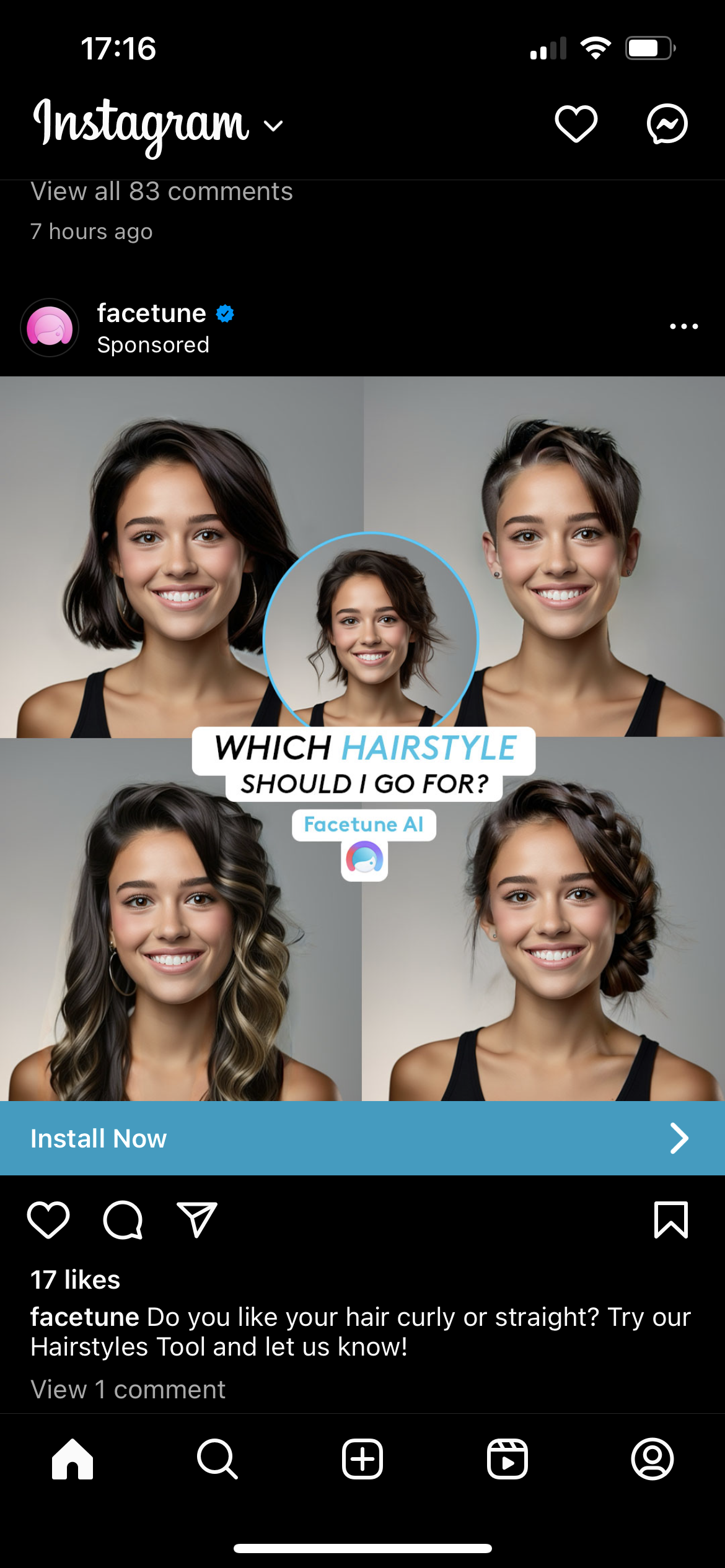My 24-Hour Media Diary on Privacy and Security
For this week, I did a 24-hour media diary on January 25, 2023, to discuss the importance of privacy and security. Many companies collect and track personal information and target consumers. Below are my findings about the companies and services I use that frequently target me.
6:00 a.m. – Lately, when I wake up on Thursdays, I lay in bed and check my GroupMe notifications for new work updates. Mostly, I like comments and hardly post my own. Besides hearting posts, I change my profile pictures about two to three times a year. Recently, it’s of me holding my baby niece.
Based on this information, I’ve willingly given the app my personal information: my name, email address, phone number, and synced contacts. GroupMe‘s owner, Microsoft, collects this data, and their privacy policy shows that they know my activity within the app and my IP address.
6:30 a.m. to 7:00 a.m. – I watch Bones on Hulu while I eat breakfast. Based on my watch history and liking and saving films/shows, Hulu suggests genres I enjoy: comedies, romantic comedies, crime, psychological thrillers and horror, sci-fi, slice-of-life anime, Korean shows/movies, and NHL. My Hulu activity occasionally advertises the shows I love while scrolling through Disney Plus and vice versa.
Since I subscribed to Verizon’s Disney Bundle, I frequently receive ads on Instagram about the deal. I assume I get these ads based on my phone plan, movie/show preferences gathered from Hulu and Disney, and my data shared from third parties.
Their privacy policy says that business partners and third parties share my data with Hulu, such as my online/offline activities, purchasing behavior, and demographics, which indicates Hulu knows more than my name. I assume they know my precise location, email address, home address, phone plan, and maybe credit card information.
7:00 a.m. to 8:45 a.m. – After breakfast and TV, I work on my homework, using Canvas on my laptop and Microsoft OneNote on my iPad to make notes.
I access my current university courses on Canvas. I read articles, watch videos, and submit assignments. The system holds my submissions, name, email address, profile photos, and site activity. Five months ago, I changed my profile photo to a current version of me, aiding in filing more of my demographics. Based on my classes, I assume the company can roughly estimate my chosen degree.
Regarding Microsoft OneNote, where I take notes for my class, the company knows my interests, name, email address, home address, IP address, card information, any time I share a document, how often I use their services, and my device information. Based on this information, I assume this is why I receive emails from Microsoft about note-taking tips for school.
8:30 a.m. – I scroll through Amazon because I am bored and want to see their suggestions. During that time, I came across products similar to my previous searches and purchases, such as travel backpacks, anklets, and ice-skating gear. I assume this is due to them maintaining their advertising profile of me and wanting to influence my behavior and persuade me to buy something related or similar to my interests. Occasionally, after I jump off Amazon and hop onto Instagram or the internet, I see ads for the products I viewed seconds to hours ago.
Screenshot of my Amazon feed
Besides their advertising profile and the personal information I provide to purchase items, their privacy policy states they also collect data on my IP address and device metrics.
9:30 a.m. to 3:00 a.m. – During this time, I was working, and I didn’t interact much with media except for my Apple Watch.
I use the watch to check the time as it tracks my location and steps for the day and measures my heart rate. It also listens to my environment and frequently sends me notifications that the surrounding noise is potentially damaging to my ears. Since it tracks my biometrics, this is probably why I sometimes receive ads about health apps on Instagram.
3:30 p.m. – I watch Bones again, this time on my iPhone. I have three devices connected to my Hulu account, allowing the company to collect information on them.
4:00 p.m. – Sitting at my desk, I start my homework and search for information on what services collect data, which means algorithms will probably send me ads about VPNs or cyber security similar to previous days ago. For example, an advertisement for Surfshark popped onto my Instagram feed an hour later.
Screenshot of my Instagram feed
4:30 p.m. – Taking a break from homework, I look up how to care for wavy hair because I’ve been receiving ads on Instagram about how to care for wavy hair for several weeks. The website I entered, Hair.com by L’Oreal, collects IP addresses, device info, and location. With this information, they create advertising profiles for their consumers and visitors, and I will most likely start receiving advertisements related to their website or hair on the internet or Instagram.
Screenshot of my Instagram feed 30 minutes later
5:00 p.m. – I check my Instagram on my phone, scroll through my feed, and browse the explore page. On the explore page, I see posts suggested by the videos and images I’ve liked and saved. One post I interact with is a Dramione drawing, which links me to the Archive of Our Own, a story platform where I occasionally read Dramione fanfiction.
Because of these actions, I’ll most likely receive advertisements on the internet and Instagram related to Harry Potter merchandise based on previous experience. I assume this happens because websites like Archive of Our Own, which collects IP addresses, page interaction, and cookies to create advertising profiles on consumers, influence the outcome of these ads.
5:45 p.m. to 8:30 p.m. – I start writing on Grammarly and transferring the notes I created for this blog into the system. All my writing assignments and stories begin on this service. They keep my titled documents and automatically save my work while checking for misspelled words and passive sentences. Based on this information, they know my writing style, vocabulary, and subjects I’m most interested in writing about.
To access its free service, I provide them with my name, email address, IP address, and location. The company also collects data from third-party signups, browsers, time zones, and operating systems.
After reflecting on my media usage, it’s hard not to notice that the services and companies I interact with require my personal information. After browsing Amazon, Hulu, and the internet, I frequently receive advertisements about previous purchases, movies/shows, and related search topics on Instagram. These companies must have shared data with Instagram to have my other online activities and interests displayed in its algorithm.
The results are unsettling, and I question if I should continue using Instagram and Hulu. Companies tracking and sharing my data feels like surveillance, and I wish that my personal information, interests, and online/offline activities were not floating between businesses so causally.



